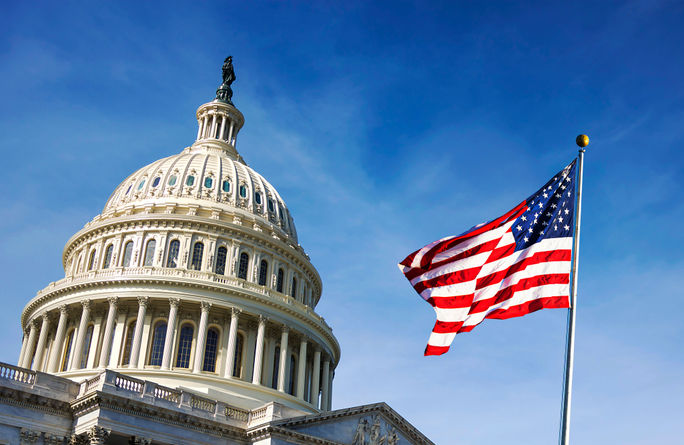The U.S.
Travel Association has unveiled a disconcerting report, indicating that the
United States is lagging far behind in global travel competitiveness, ranking
only 17th out of 18 top travel markets worldwide. The study, conducted by
Euromonitor International, exposes a significant decline resulting from years
of underinvestment and a lack of strategic coordination among federal
policymakers.
U.S. Travel commissioned the study from Euromonitor International in hopes of
discovering the reasons behind the slow recovery of inbound international travel to the U.S. post-pandemic,
as well as to help formulate a strategy for how the country can become more competitive
in attracting global travelers moving forward.?
Geoff Freeman,
President, and CEO of the U.S. Travel Association emphasized the urgency of
acknowledging the situation and taking bold actions to revitalize the nation's
travel sector. "U.S. officials cannot ignore the bold, decisive steps
other nations are taking to advance and modernize their travel economies,"
Freeman stated. ��The United States should aspire to lead the way into a new
era of seamless and secure travel, and capitalize on the many opportunities to
grow this critical sector.��?
?
The study analyzed
18 leading countries across four weighted categories: National Leadership;
Brand and Product; Identity, Security and Facilitation; and Travel and Connectivity.
The U.S. fell short most notably in National Leadership and Identity, Security and
Facilitation, signaling a need for substantial improvements in these areas.

American flag waving in front of the U.S. Capitol. (photo via rarrarorro / iStock / Getty Images Plus)
National Leadership
Astonishingly, the
U.S. came in dead last in terms of National Leadership, ostensibly due to a
lack of government leadership on travel-related issues and the absence of a
robust national travel strategy. Unlike most leading markets, the U.S. lacks a
dedicated tourism minister, relying instead on the Assistant Secretary of
Commerce for Travel and Tourism position, a role which remains unfilled and has
yet to even be fully funded by Congress.?
The U.S. did
perform well in the travel promotion category, benefiting from the
effectiveness of the promotional organization Brand USA (a public-private partnership),
as well as emergency
funding from Congress provided in 2022. However, the study underscored the
necessity for more specific federal policies and further funding to increase
inbound visitation.
Brand & Product
Interestingly
enough, the U.S. remains the most sought-after destination among global
travelers, but it ranked third in terms of total visitation (behind Spain and
France). The United States welcomed roughly 67 million international visitors in 2023, down
from 79 million in
pre-pandemic 2019. That means the U.S. has only achieved 84 percent
recovery, falling far behind its competitors�� recovery rates.?
The United States
also fell short on safety rankings, indicating room for improvement in ensuring
the safety of international travelers. The study noted that the U.S. ranked low
when held against the World Economic Forum Safety and Security Pillar, which factors
in the prevalence of crime and violence in the nation, and was used to assess
safety aspects. ?

White House in Washington, D.C. (photo via solomonjee / iStock / Getty Images Plus)
Identity, Security
& Facilitation
Identity, Security
and Facilitation emerged as a critical concern, with excessive visitor visa
interview wait times contributing to the U.S. ranking last in this category.
The limited number of countries eligible for visa-free travel and outdated
security screening processes further affected the U.S.�� standing.
U.S. Travel found
that the U.S. could?gain?2.4 million?more visitors this year if visitor
visa interview wait times weren��t so excessive (currently approaching an average
of 400 days). Expanding its Visa Waiver Program (VWP) would also work to boost
competitiveness significantly. Currently, the U.S. only permits visa-free
travel from 42 countries, trailing far behind the 102 countries the U.K. grant
visa waiver privileges to.?
Travel & Connectivity
Despite these
challenges, the U.S. excelled in global air connectivity, highlighting its
position as a major hub for direct and connecting flights. However, the
economic risks associated with inefficiencies in the U.S. travel system were
underscored, with potential losses amounting to billions of dollars.
Seamless & Secure Travel Commission
To address the
issues laid out above, the U.S. Travel Association has formed the Seamless and
Secure Travel Commission, chaired by former Acting Secretary of the U.S.
Department of Homeland Security Kevin McAleenan. Comprising former government
officials and private sector experts, the commission aims to formulate a vision
and policy recommendations for modernizing the travel experience, enhancing
U.S. competitiveness and fostering growth in international visitation. The
commission is set to release its policy recommendations in the autumn of 2024.
For the latest travel news, updates and deals, subscribe to the daily TravelPulse newsletter.
Topics From This Article to Explore